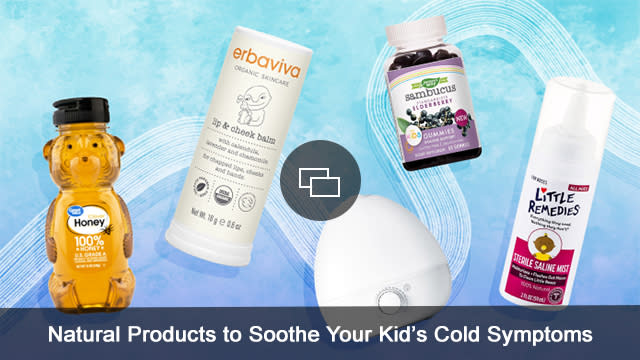Why the FDA Rejected This EpiPen-Alternative Nasal Spray

Neffy, an epinephrine nasal spray designed to decrease severe allergic reactions and serve as an alternative to EpiPens, was rejected by the FDA yesterday. The agency cited the need for another study on the drug in order to approve it, according to a statement released by ARS Pharmaceuticals, which developed the product.
It’s an unexpected decision, given that the FDA’s expert advisory panel voted to recommend the FDA approve neffy when they discussed the nasal spray back in May. The panel voted 16 to 6 in favor of approving it for adult use and 17 to 5 in favor of approval for children weighing 66 pounds or more.
More from SheKnows
The FDA was initially scheduled to make its approval decision on the nasal spray in June, but extended its deadline to September to allow for discussions of “labeling and post-marketing requirements,” according to a June press release from ARS. Post-marketing requirements typically refer to “activities after FDA approval of a product to generate additional data about a product’s safety, efficacy or optimal use,” an ARS spokesperson told Allergic Living at the time.
Now, the FDA is asking that ARS complete a new study “assessing repeat doses of neffy compared to repeat doses of an epinephrine injection product under allergen-induced allergic rhinitis conditions,” ARS stated in the press release
Click here to read the full article.
“We are very surprised by this action and the late requirement at this time to change the repeat-dose study from a post-marketing requirement,” said Richard Lowenthal, co-founder, president, and CEO of ARS, in the statement. The company plans to appeal the FDA’s request for another study.
ARS describes neffy as a “needle-free, low-dose intranasal epinephrine nasal spray,” designed to be used as a “rescue medication” for people with Type 1 severe allergic reactions. That includes anaphylaxis, a life-threatening allergic reaction that occurs when the body is exposed to an allergen and goes into shock, according to Mayo Clinic. Anaphylaxis must be treated immediately, ideally with epinephrine (aka adrenaline) and a follow-up trip to the emergency room.
The EpiPen and EpiPen Jr. (for kids), auto-injectors that contain epinephrine, are currently used to decrease these kinds of severe allergic reactions. EpiPens inject epinephrine directly into the muscle, using a needle that many people (especially kids) find frightening and even traumatic, according to many patient and parent testimonies during the advisory panel meeting in May.
In addition, 2011 study of over 14,600 patients with EpiPens found that only 11 percent refilled their EpiPen prescription “consistently at all expected refill times.” A subsequent 2021 survey on EpiPen underuse found that caregivers are often hesitant to use the injector for a number of reasons, including their own fear of the child’s reaction (about 29 percent), and the child’s fears or nerves around the needle (about 4 percent). Many patients and parents may find an epinephrine nasal spray more convenient and less frightening to use.
During the advisory panel meeting, some experts raised concerns about the lack of real-world clinical data on nasal epinephrine (due to studies being conducted on healthy volunteers, for ethical and safety reasons) and ARS data showing that “it takes a few minutes longer for nasal epinephrine to reach peak concentration in the blood” compared to EpiPen injection, according to Allergic Living. However, other experts noted that a patient or parent may be more willing to use a nasal spray instead of an EpiPen and may therefore use it more quickly, cutting down on delays and potentially making up for a slower absorption rate.
ARS says it plans to resubmit neffy in the first half of 2024 and anticipates an “FDA action date” in the second half of next year.
Before you go, check out these cold-relieving products for your child:
Best of SheKnows
Sign up for SheKnows' Newsletter.
For the latest news, follow us on Facebook, Twitter, and Instagram.


